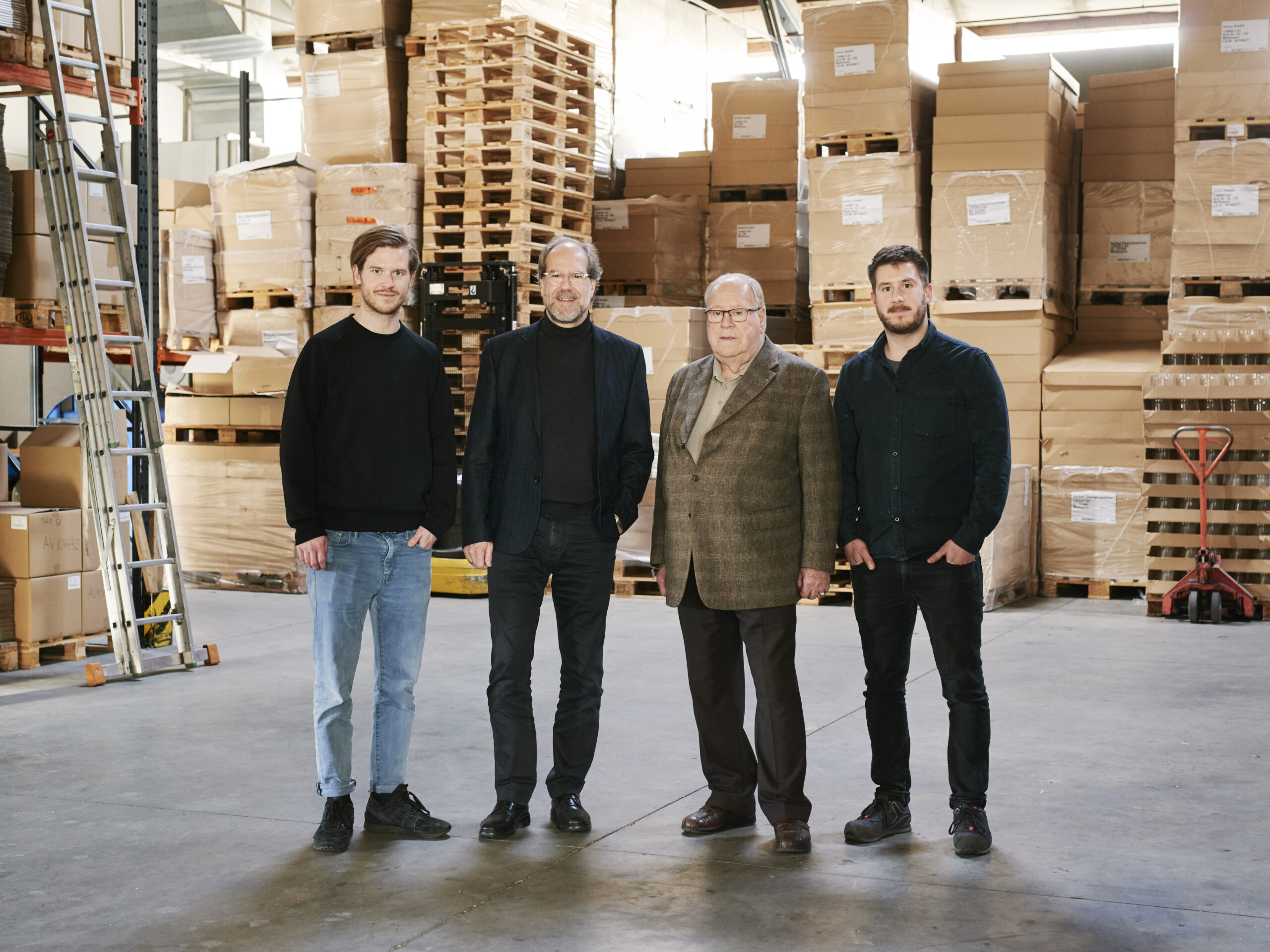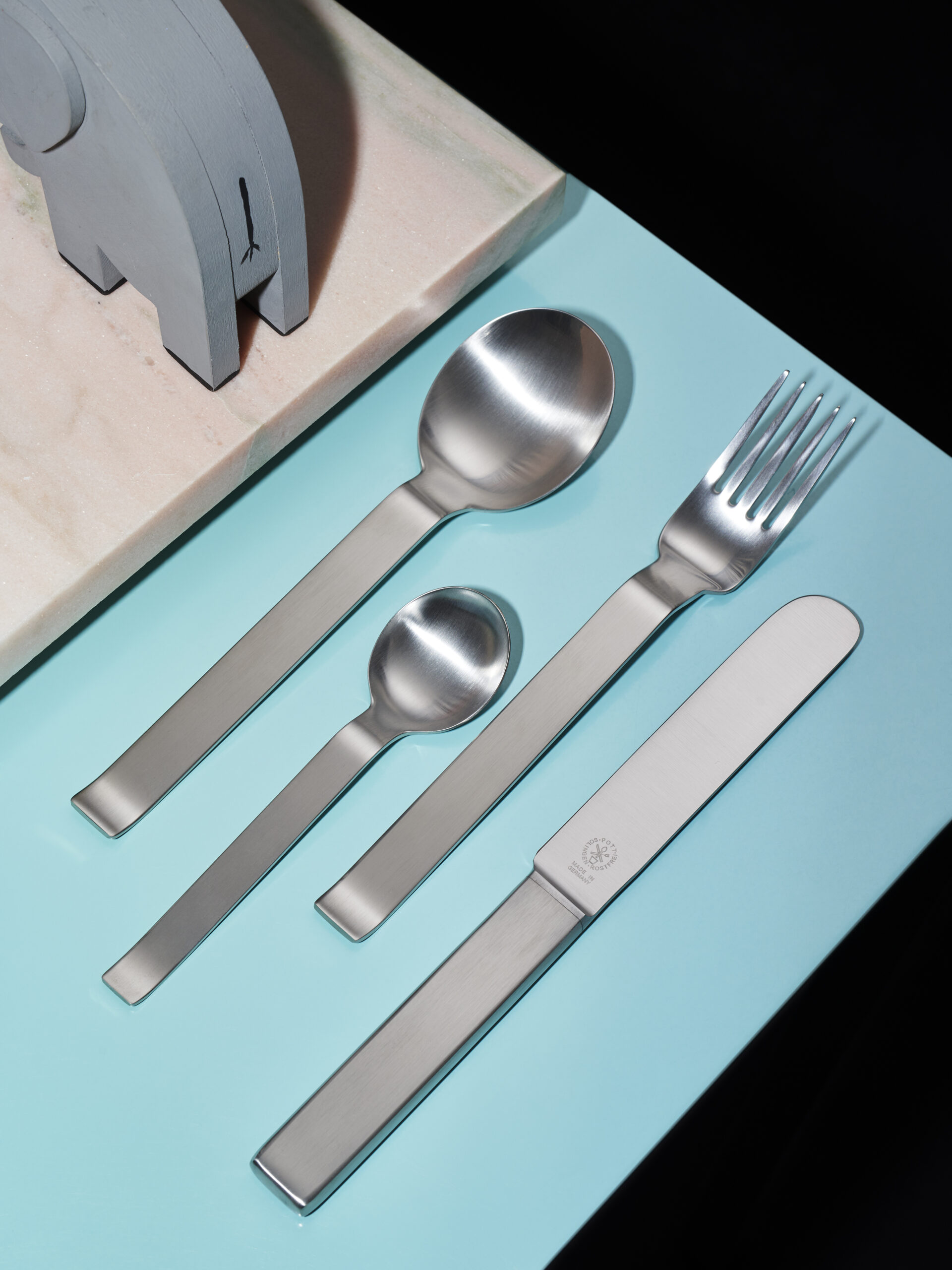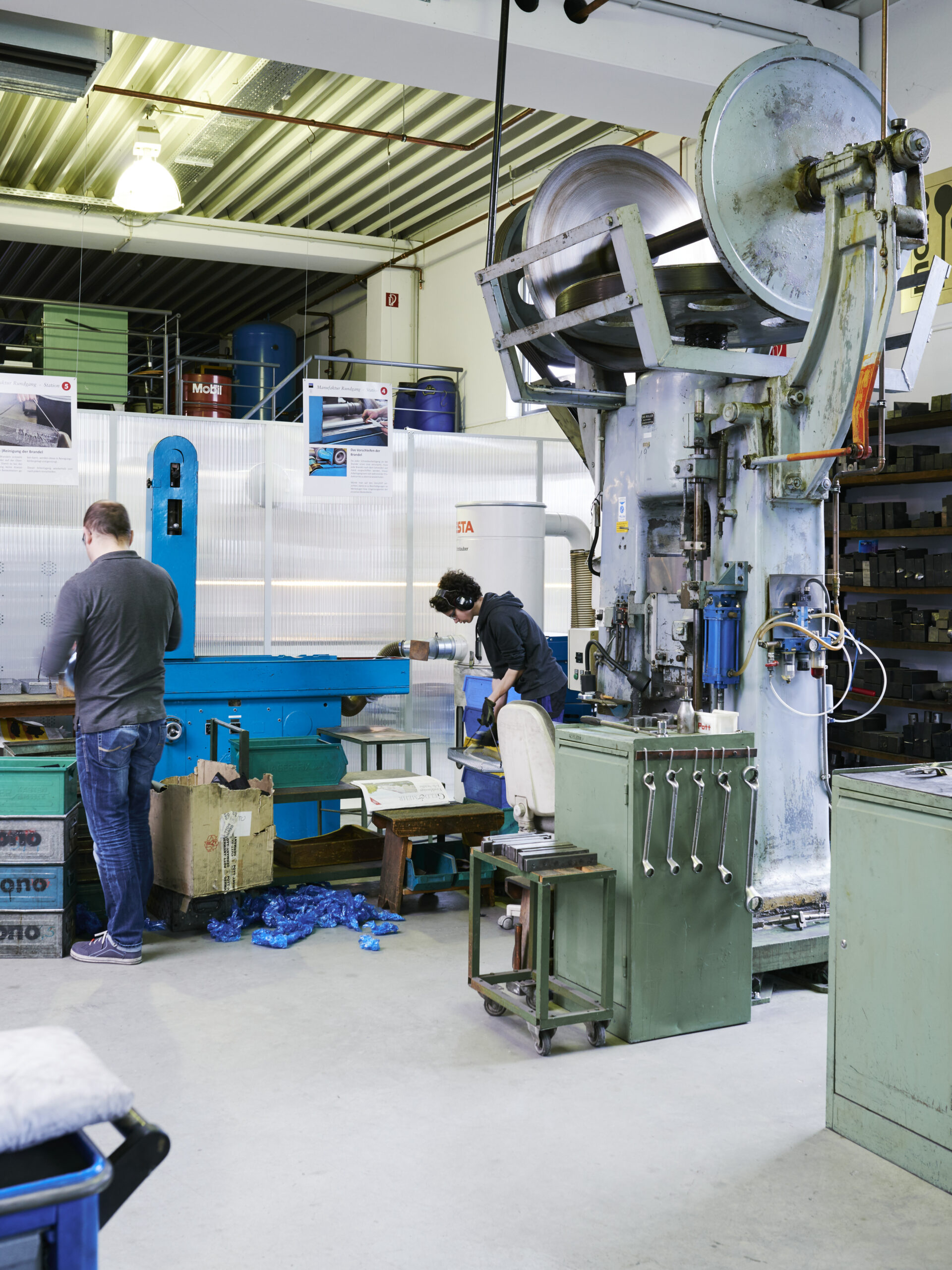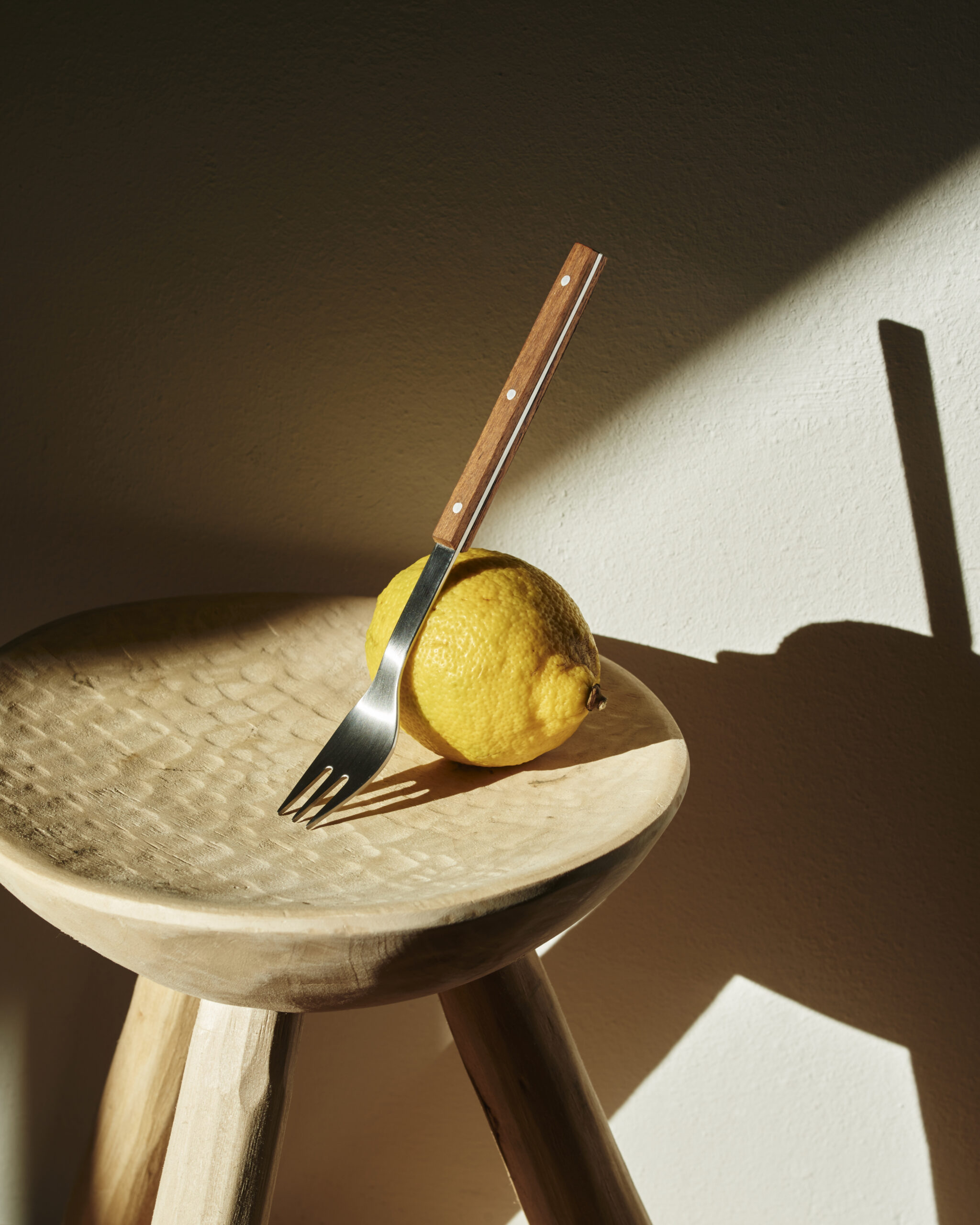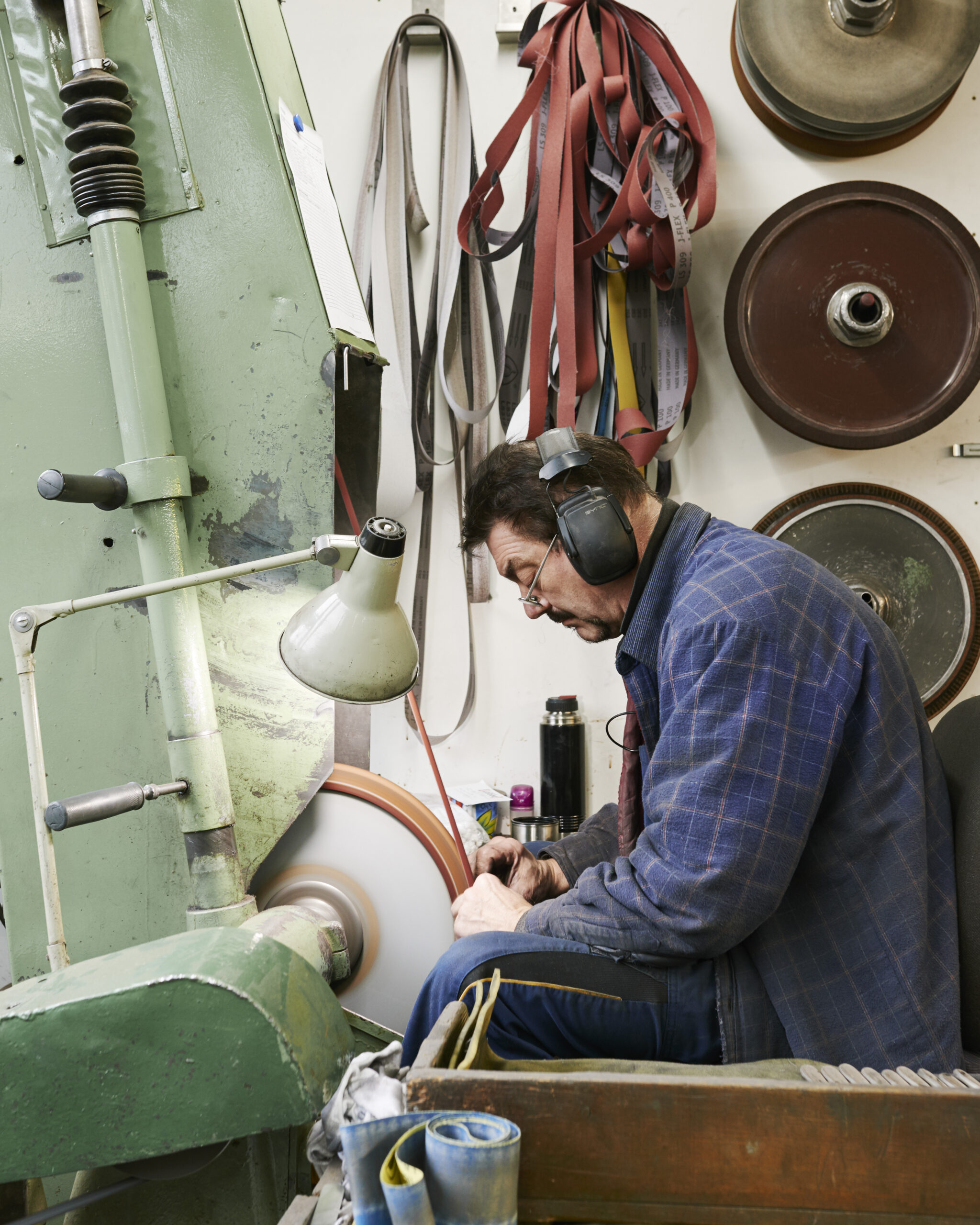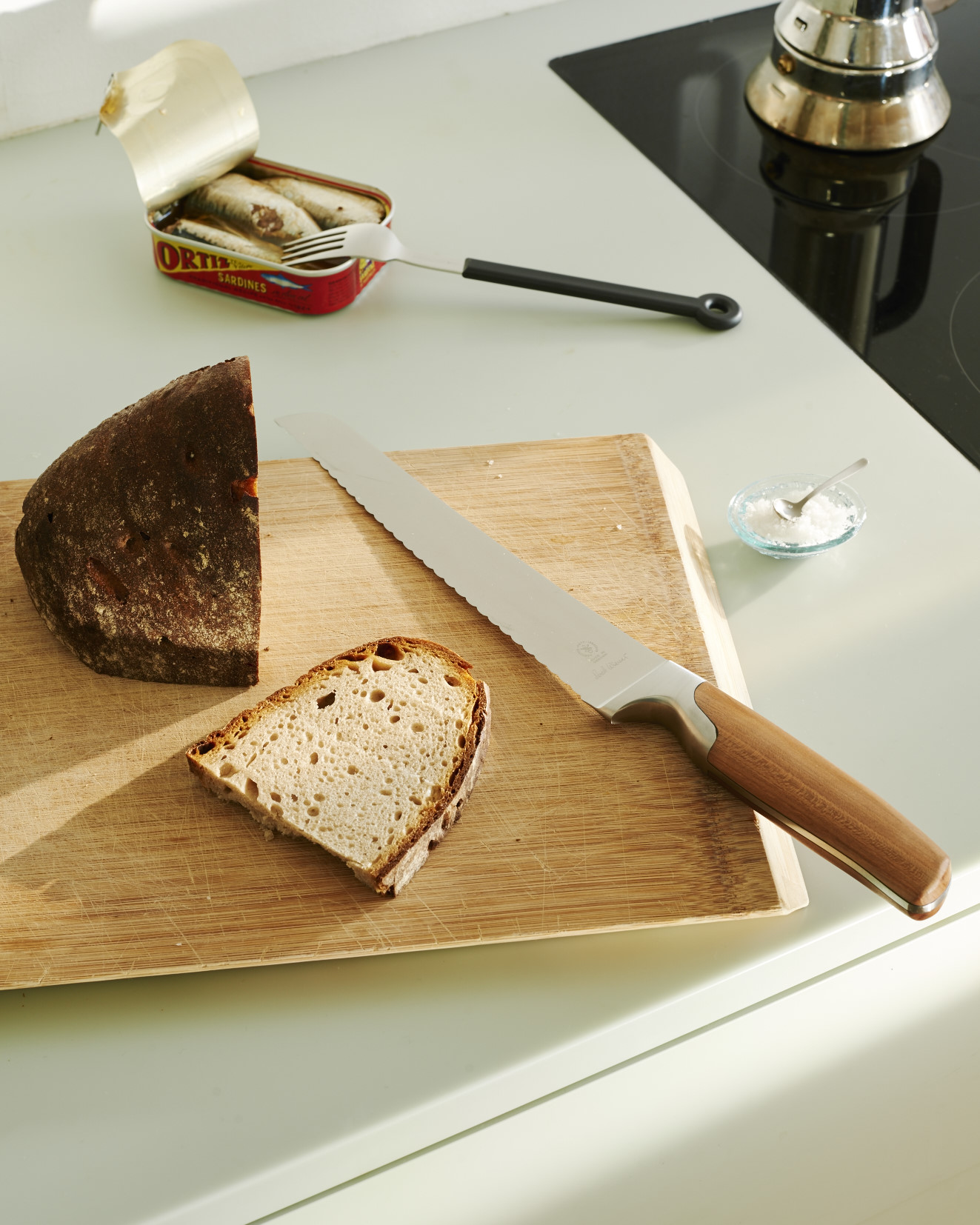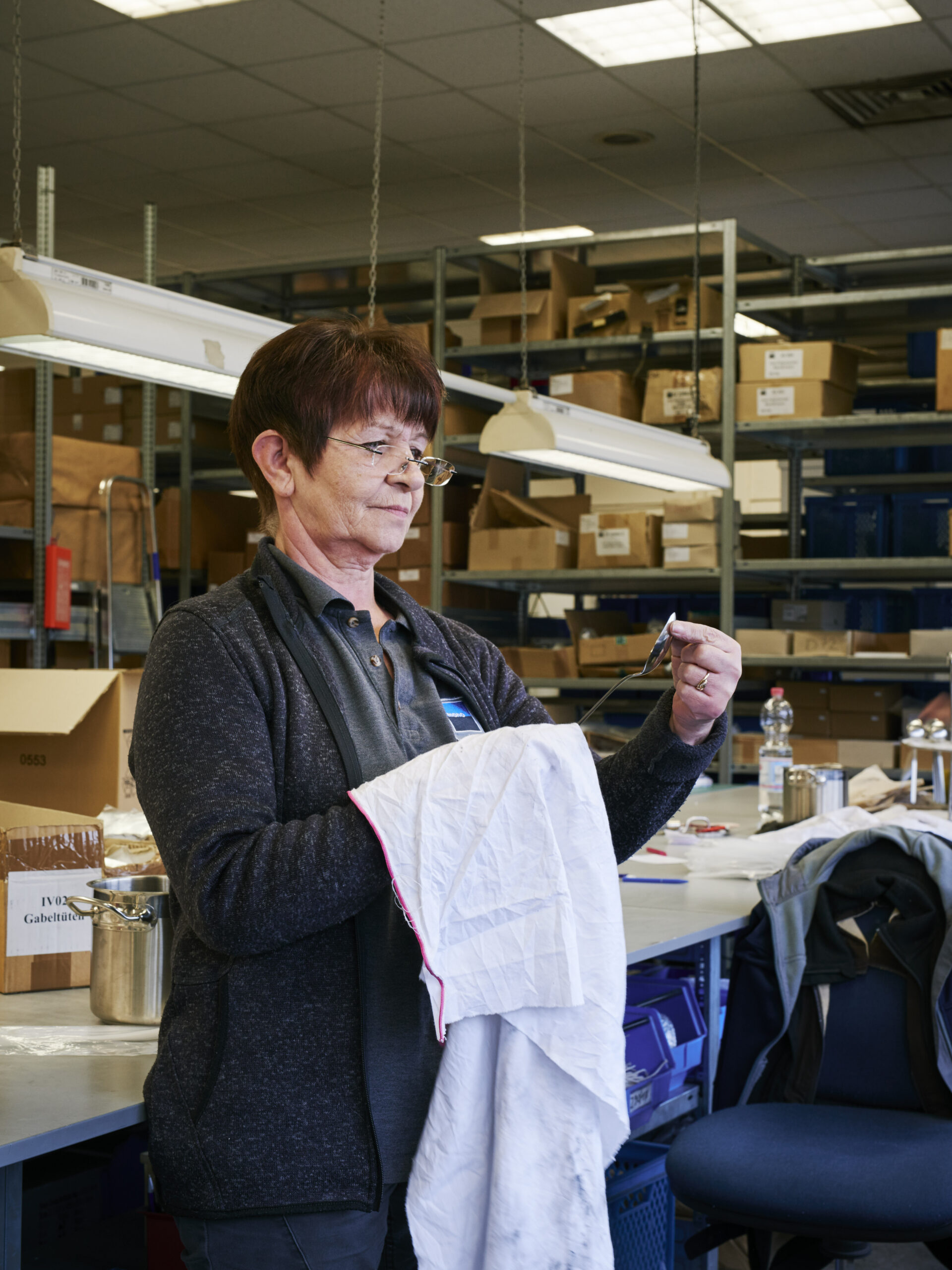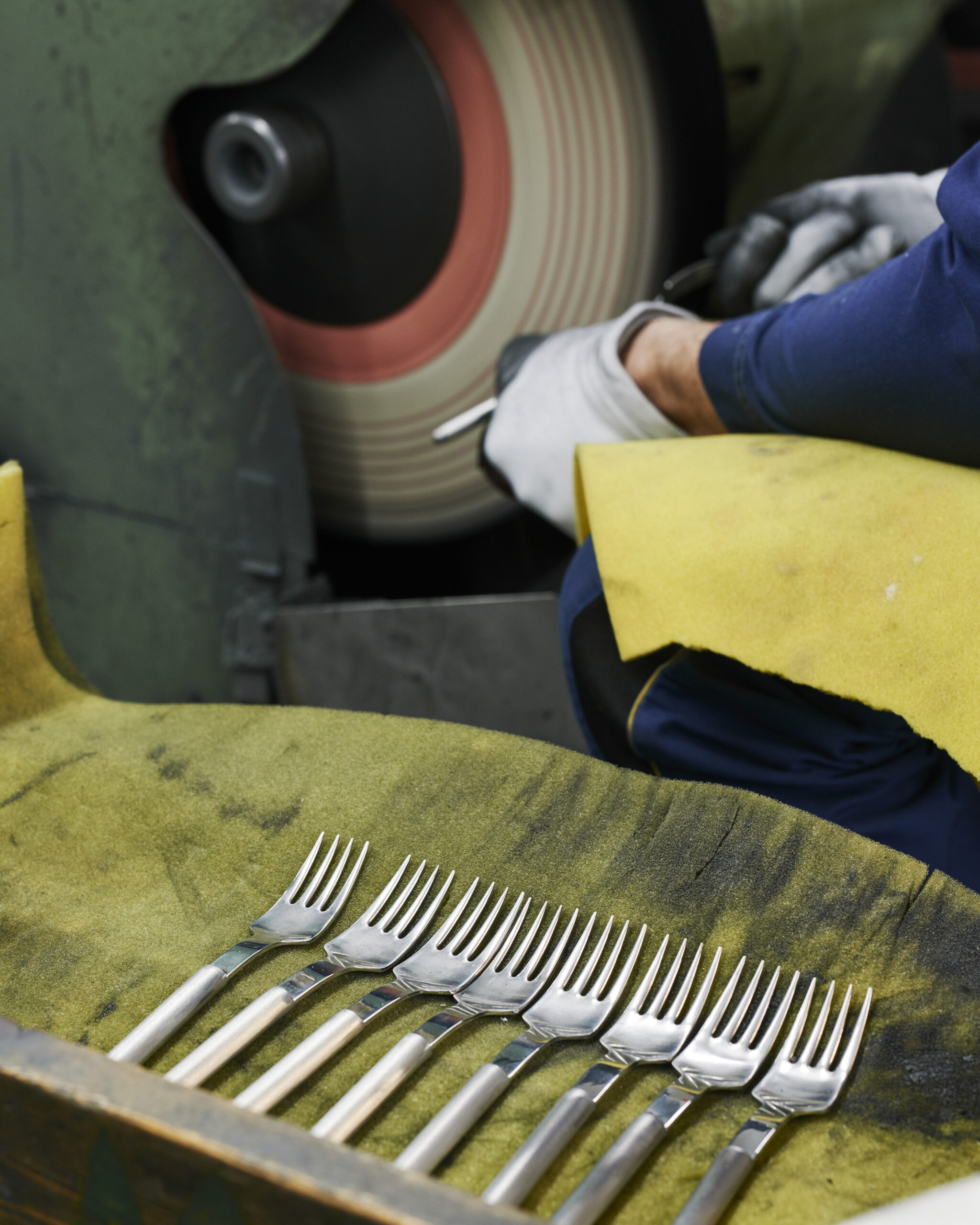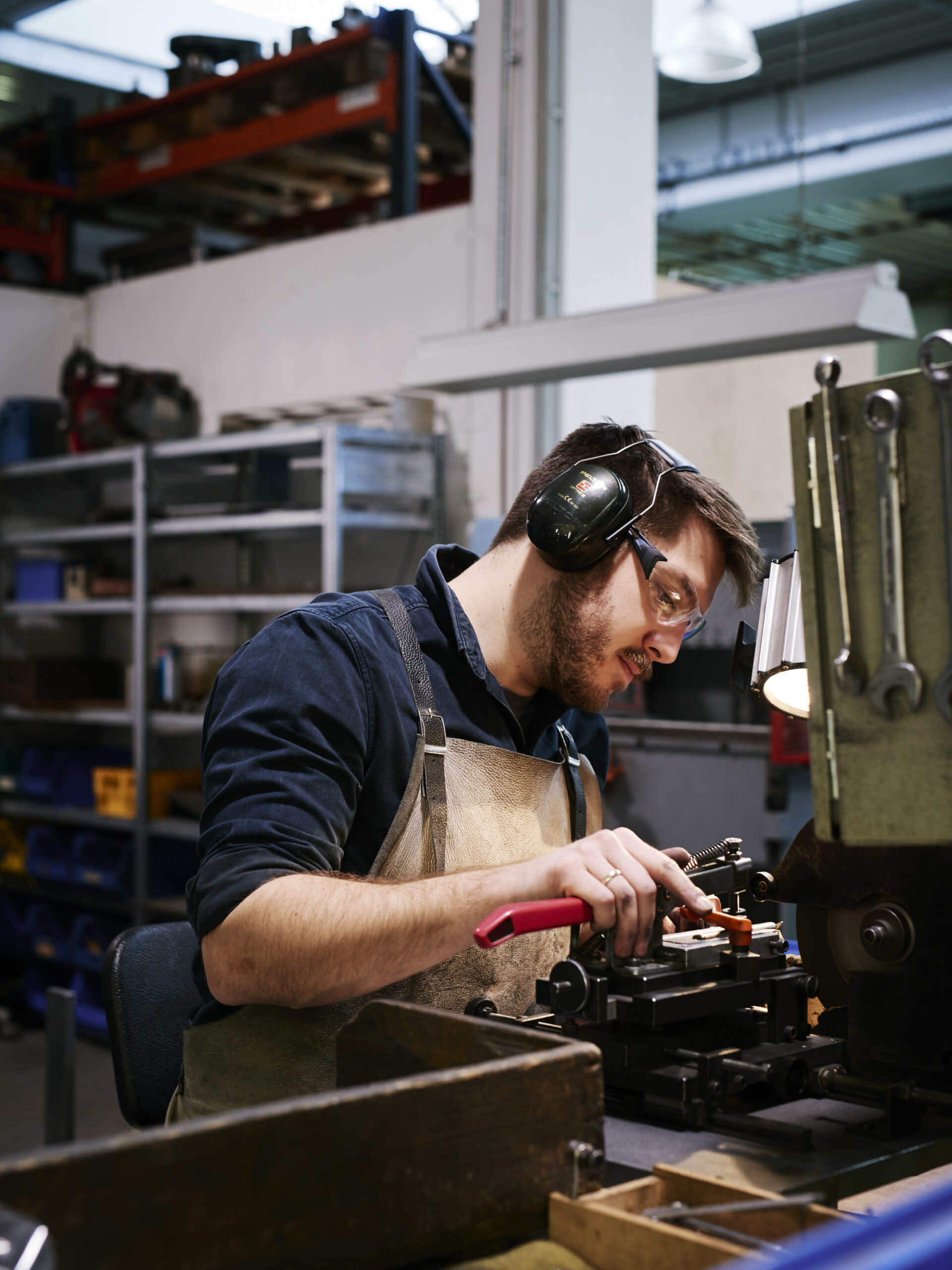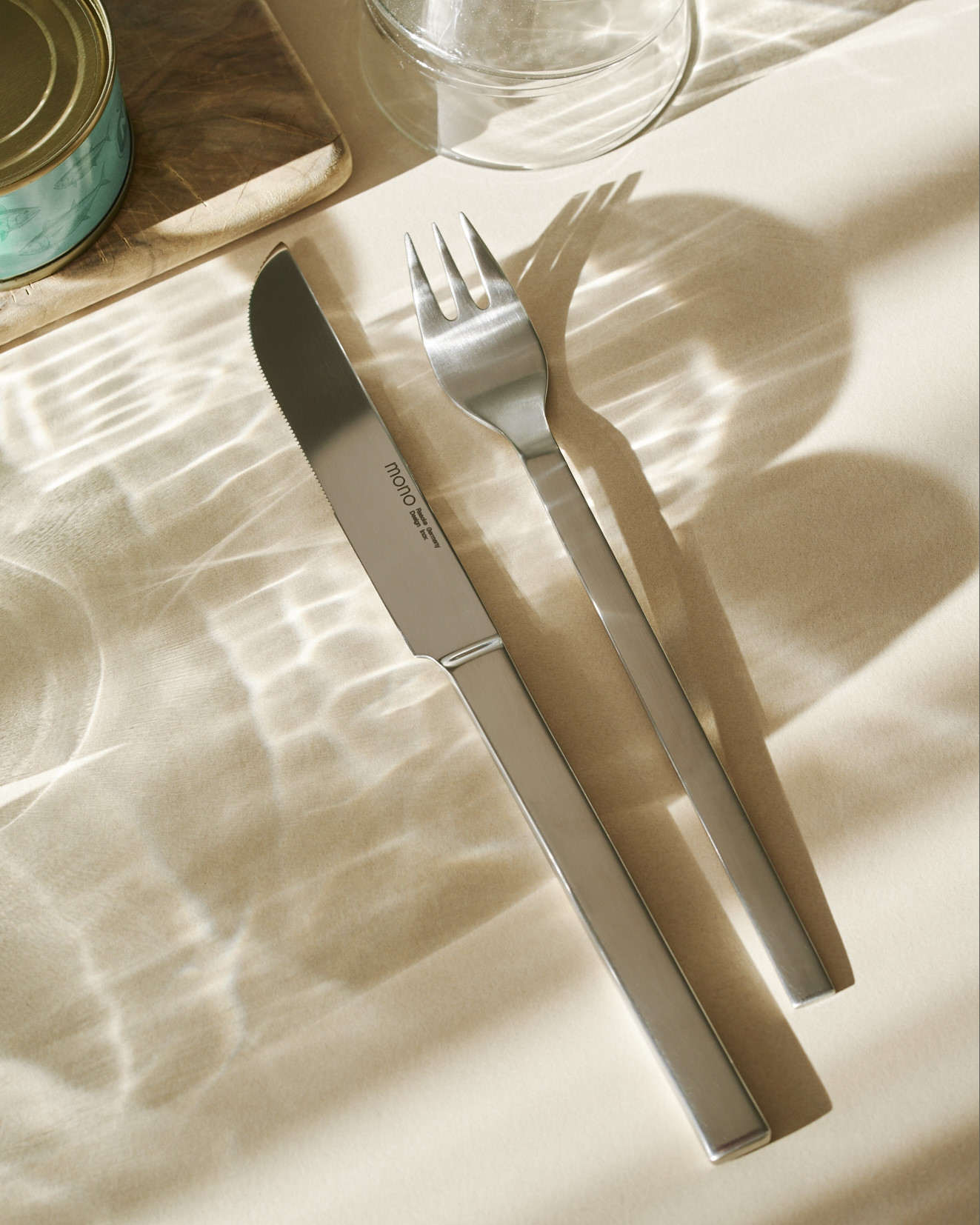MONO
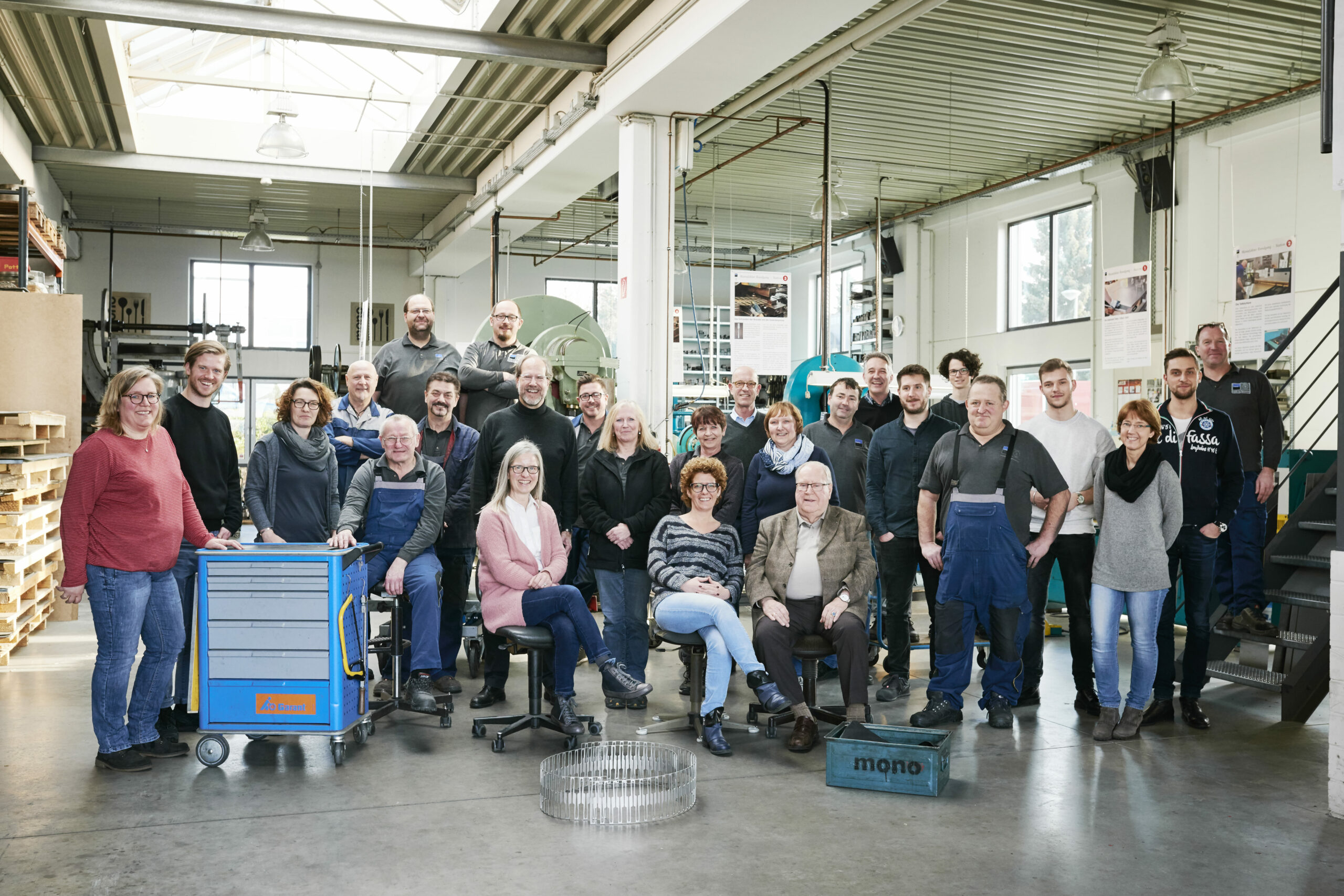
Please introduce yourselves briefly. Who are you and what do you do?
Mono is a cutlery and design manufacturer. We are a family business, founded in 1895, which today is managed by the 5th and 6th generation in Mettmann. That is where in the late 1950s, the Mono brand started with the development of the Mono A cutlery by designer Peter Raacke. Since we acquired the long-established company Pott of Solingen in 2006, their cutlery and other products have also been manufactured here.
What is special about your company and how do you distinguish yourself from other cutlery manufacturers, for example in the manufacturing process?
This might sound a bit over-confident, but we believe that there is no other cutlery manufacturer in the world that combines quality, timeless modern design and heritage like we do. In Germany, there are only a handful of “cutlery makers” who still manufacture locally, and we are decidedly sticking with that. In the manufacturing process, a lot happens by hand, eye and senses – and a lot happens in the last few meters. You can recognize high-quality cutlery by the elaborate manufacturing steps and the finish. For example with pleasantly thinly rolled spoons and forks and the resulting balance. If the forks have been properly smoothened and the pre-sanding ensures that a perfect matt finish or polish is created, you know that a master craftsman was sitting at the bench grinder.
What do you find exciting about your work?
We feel privileged to have run a family business for over 125 years. We enjoy making cutlery and other design products that have been in creation for over a century, are part of international collections (e.g. MoMA New York) and have inspired people around the world for generations. We also find it exciting to put all this history into a contemporary context through collaboration with designers, restaurateurs and other disciplines.
“We stand for conscious consumption. That means knowing where things come from, how things are made and what impact that has on an ecosystem. This requires knowledge and we have at least a partial responsibility to provide it.”
Why is good design as well as quality and manual work important to you?
With good design and high quality, we pursue two goals. On the one hand, Mono products should provide long-lasting pleasure through high functionality and formally good aesthetics in use. In contrast to other commodities, cutlery (and other Mono products) hardly show any signs of wear and tear. Consequently, only one purchase is needed in a lifetime, and this decision should be very deliberate. At the same time, Mono products should cause as little, or better yet, no damage as possible with a resource-saving production and durability. We can ensure this above all through our local production and sources of supply. More than 65% of value is added in our manufactory and for everything else we work together with local, long-term partners. On the subject of manual labor: we are not opposed at all to automation or robotics. But in our field manual work makes a difference in many steps and the human eye and fingertip feeling cannot be outperformed by sensor technology (so far). As a relatively small manufactory with many different products (many cutlery series with many different parts) we work in small series production. This means that automatization would not necessarily be more economical.
Where do you see the connection between sustainable gastronomy, the artisanal food sector and you?
We share values and pursue the same goals. In gastronomy, food production and in the creation of products for the kitchen or the table, mass and price pressure is a problem that burdens employees and the environment as much as, eventually, quality and customers. To counter this, we try to fulfill our responsibility as a social employer and sustainable manufacturer in the best possible way. Regionality also plays a central role for us.
To what extent can a sustainable food culture benefit from good cutlery?
It would be infuriating and inconsistent if awareness of sustainability, responsibility and quality only concerned our own products. Sustainability must be thought of in holistic terms. It is not easy to be consistent at all times, and we realize that even as a manufacturer with limited resources. As far as cutlery and some other products are concerned, we believe we offer good options. And we are working on making it even better, step by step.
Where do you see potential for you in cooperation with other companies?
That depends a lot on the company. Collaboration and inspiration seem like good keywords to us. Either we work together on products, projects or visions, and if that’s not the case, exchange with others offers us a lot of inspiration for our own work and potential for improvement.
What are your short and long term plans for the future?
We want to continue doing our job well and sustain the right to exist in the medium and long-term future. This is only possible with a good CO2 balance. Sustainability has always played a role for us and on sunny days, for example, we currently cover the entire electricity requirement of the production with our photovoltaic system. But there is still a lot to do. We want to become a CO2-neutral company and we don’t want to do this by buying certificates or any kind of vehicle, but by reducing our emissions as much as possible in all areas of the company and by producing our own energy.
“Sustainability must be thought of in holistic terms. It is not easy to be consistent at all times, and we realize that even as a manufacturer with limited resources. ”
What do you see as your biggest challenges for the future?
In addition to climate change and staying relevant on the market with good products and appropriate service, a key challenge is finding and retaining the right employees. To this end, we have done a lot in recent years and critically reviewed our attractiveness as an employer in cooperation with the current team. As a result, we have been able to implement many ideas and are still far from finished. Our employees and their families have chosen us as an employer, just as we choose each individual employee. That is a connection of values and respect.
How important is knowledge transfer for you?
Knowledge transfer has always been essential for us, because you need background knowledge to be able to sell a high-priced product like ours. We stand for conscious consumption. That means knowing where things come from, how things are made and what impact that has on an ecosystem. This requires knowledge and we have at least a partial responsibility to provide it.
“Collaboration and inspiration seem like good keywords to us. Either we work together on products, projects or visions, and if that’s not the case, exchange with others offers us a lot of inspiration for our own work and potential for improvement.“
Why did you become a member of die Gemeinschaft and what do you wish for the collaboration within die Gemeinschaft?
We think the discussion about conscious and sustainable consumption in the kitchen, at the dining table as much as outside of that is important. We believe we will find many allies in the community to not only talk about it, but to actively improve things together. Above all, the community is a platform for exchange and inspiration for us, as much as a place we’d like to contribute to. Get in touch if you’re seeing a practical way to do so!
